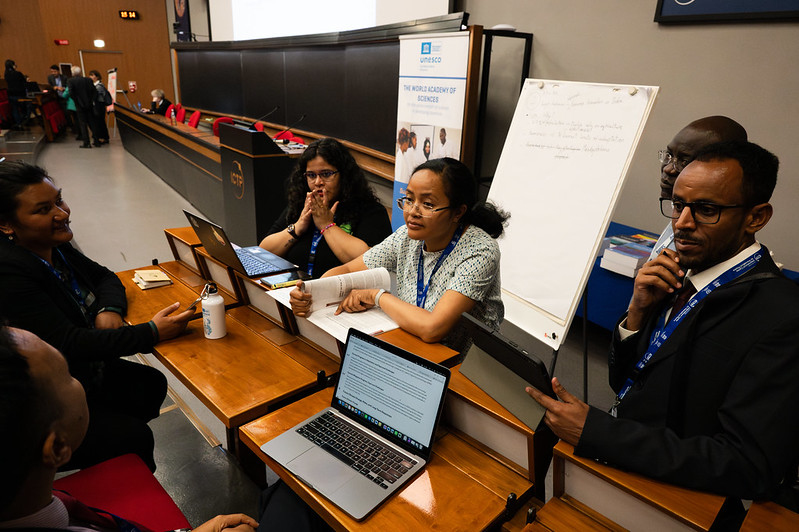
Climate change is a global crisis that requires a global response—but the fact remains that some regions in the world, particularly in the global South, will bear the brunt of its effects. But how can the world community ensure that scientists from regions that will bear the brunt are included in the process of assessing it, and shaping the world’s response?
To address this question, TWAS brought together 45 scientists from 36 developing countries and 15 highly accomplished climate experts with the UN-run Intergovernmental Panel on Climate Change (IPCC) in Trieste, Italy, on 14–16 May. While there, the global South researchers received unique training on how the IPCC works, as well as the challenges of communicating its findings to policymakers and a global audience.
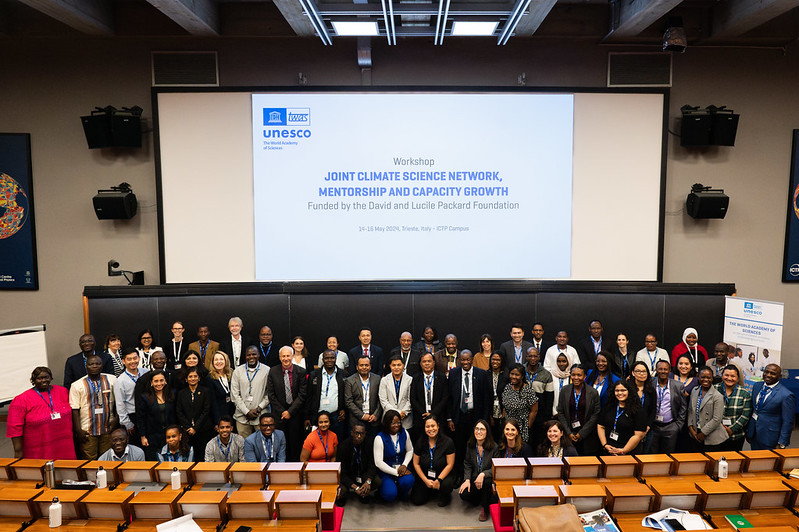
The workshop effectively merged the missions of IPCC, which provides governments with assessments of the current scientific literature that they can use to develop climate policies, and TWAS, which advances science in the global South. The objective was to provide scientists from developing countries, some of which will be most troubled by climate change, with the tools to be heard by international organizations, influence international priorities, and minimize the harm to their countries. The workshop was realized through vital funding from the David and Lucile Packard Foundation.
"This event is historic in that it provides scientists from countries that are underrepresented among the authors of IPCC reports with the expertise to actively contribute to the work of the body," said Tanzanian meteorologist and IPCC Vice Chair Ladislaus Chang'a in his opening remarks at the event.
Among the participants were 12 PhD students supported by the TWAS-Sida PhD Scholarships for Climate Research for Students from Least Developed Countries (LDCs), financially supported by the Swedish International Development Cooperation Agency (Sida).
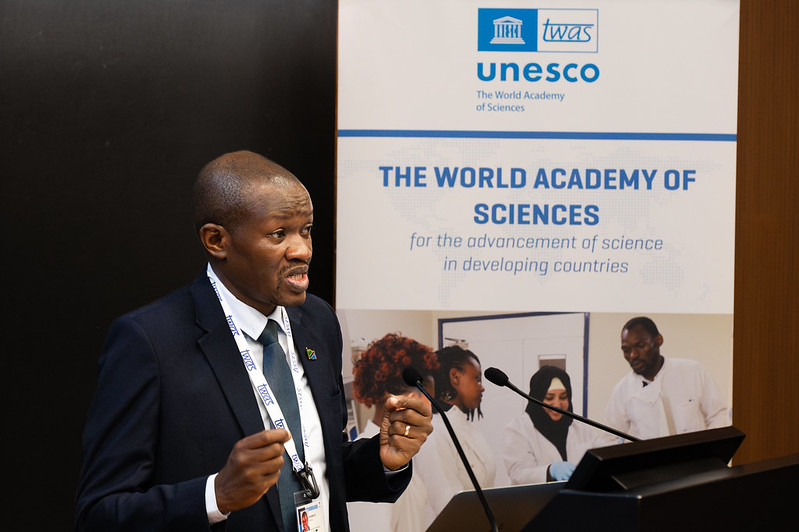
Lessons in bridging gaps
Workshop activities included explanations of IPCC processes, with details on how to enter and participate in the process of generating assessments.
IPCC assessment reports are comprehensive descriptions about scientists’ current knowledge on climate change, its possible impact on the environment and societies, and options for responses. These assessments are the central product of the IPCC’s work, are designed to inform policy- and decision-makers, and carry the potential to influence the development of government policies.
Q&A: Lesothan scientist Nkeletseng Mats'umunyane discusses how she learned effective negotiation strategies for addressing climate issues at the workshop. Read here.
"Diversity is a fundamental element for the authority and relevance of the IPCC's work in the international political arena," said Italian climatologist, science advisor to the Italian ministry on the environment and energy security, alternate focal point for Italy to the IPCC, and former Head of IPCC Working Group I Technical Support Unit Anna Pirani. “We hope to see the names of the participants among the contributors to the next IPCC assessment report.”
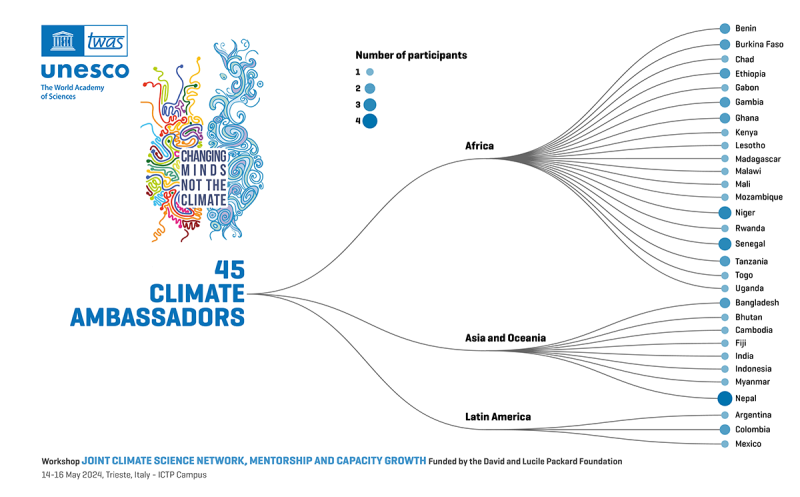
One discussion, led by Pirani and Jan Fuglestvedt, the Research Director for Centre for International Climate and Environmental Research (CICERO) in Norway, focused on the interfaces between science and policy. Fuglestvedt was an IPCC Vice Chair in Working Group I during the Sixth Assessment Report (AR6), which was completed in 2023, and is now in the seventh Cycle (AR7) Vice Chair in Working Group I on mitigation of climate change.
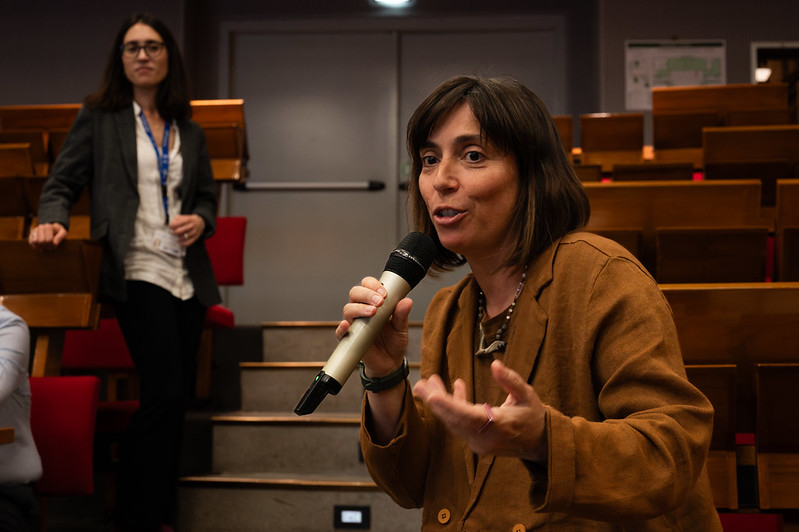
Together, they detailed how IPCC’s reports inform international climate negotiations. They also discussed emerging topics and considerations relevant for the international scientific community, whose findings are the basis of the IPCC assessments. These included the degree to which science on climate mitigation—efforts to reduce the level of greenhouse gasses in the atmosphere—and adaptation—efforts to help human beings adjust to changes in their climates—could be integrated to support achieving climate resilient development.
“During AR6 we really developed the ability to work across borders between disciplines and working groups, but there is still a large untapped potential for further integration — which will improve the relevance and applicability of our assessments,” noted Fuglestvedt.
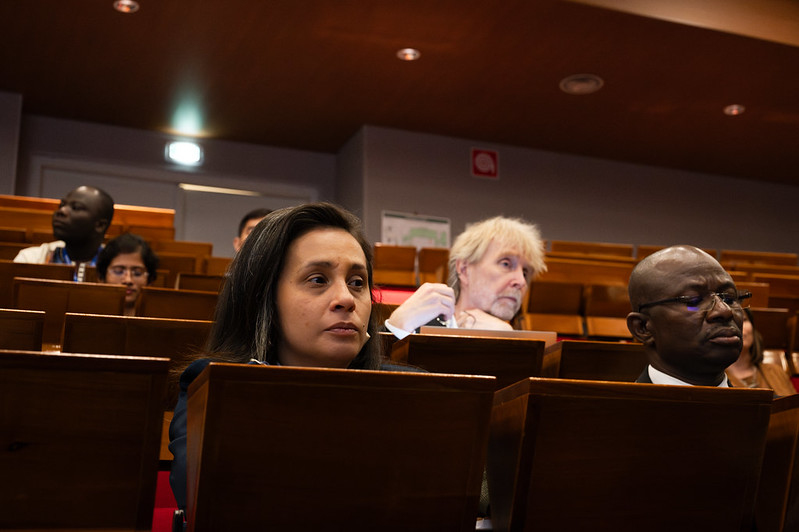
Also part of the activities was an exercise in science communication. Led by Katherine Leitzell—a science communicator with CGIAR who managed communications for AR6’s Working Group I in 2021—participants in the exercise learned how to express the realities of climate change in clear and convincing language.
She encouraged participants to build their own public profiles, and learn as much about the audiences they are speaking to in order to communicate with them effectively. She also urged them to limit their usage of acronyms and scientific jargon when engaging with the public.
“We have important messages to communicate, especially with climate change,” said Leitzell. “It affects people’s lives and it’s going to be affecting us everywhere more and more. So for climate scientists specifically, there’s very much a responsibility to communicate.”
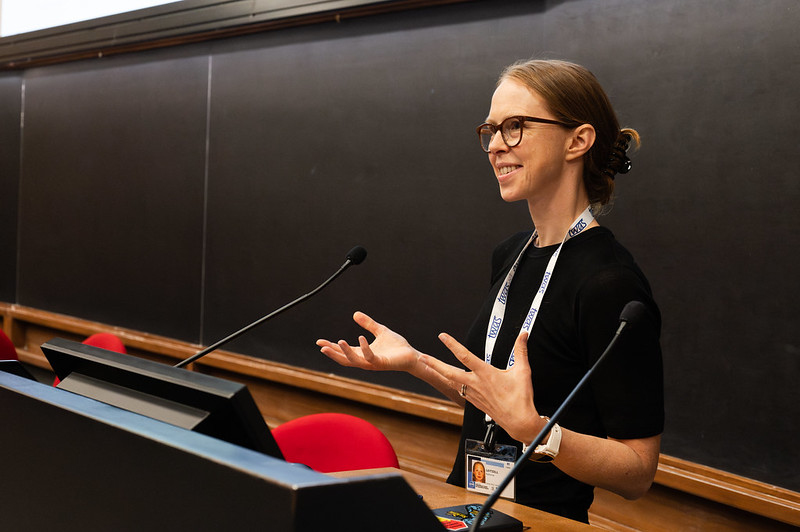
An opportunity to get involved
Participants saw the event as an important gateway into the world of international climate science that might otherwise have been unavailable to them as developing-world scientists. As the workshop came to a close, many of them expressed that they would keep in touch—with the guest IPCC experts and with each other.
“This event is special for us because we are all from developing countries,” said climate researcher Vandhna Kumar of Fiji. Kumar’s research has focused on refining sea-level rise projections for the Pacific islands, where the rising ocean levels are compelling scientists to find avenues for working with communities to adapt to disappearing coastlines.
She said the workshop was a source of inspiration by example. “You come here and you see all the other people who are just like you,” she added. “And then you see people like the speakers, who faced the same challenges you did as a scientist from a developing country, and stood strong. They prevailed and now empower others like us.”
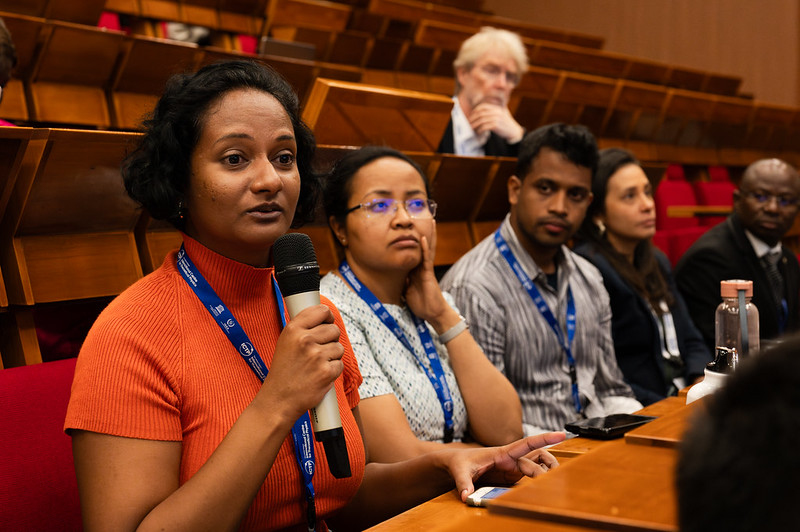
Rondrotiana Barimalala, a climate researcher from Madagascar who is currently based in Norway, said she valued the training IPCC experts provided in communication in particular, including interacting with journalists and functioning in an international environment.
“The fact that you get this big network in which you’re learning from these big names,” she said during a discussion at the end of the event. She described how it supplemented her own involvement with IPCC thus far as an African climate researcher. “They are very famous scientists and they are very experienced. You even learn from the way they ask and answer questions and the way they discuss things.”
Sean Treacy
-----
More photos are available here and on the TWAS Flickr page.

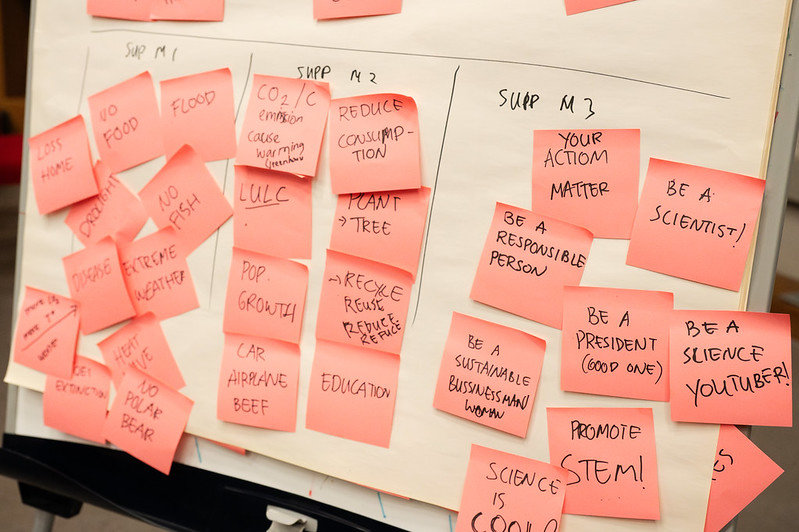
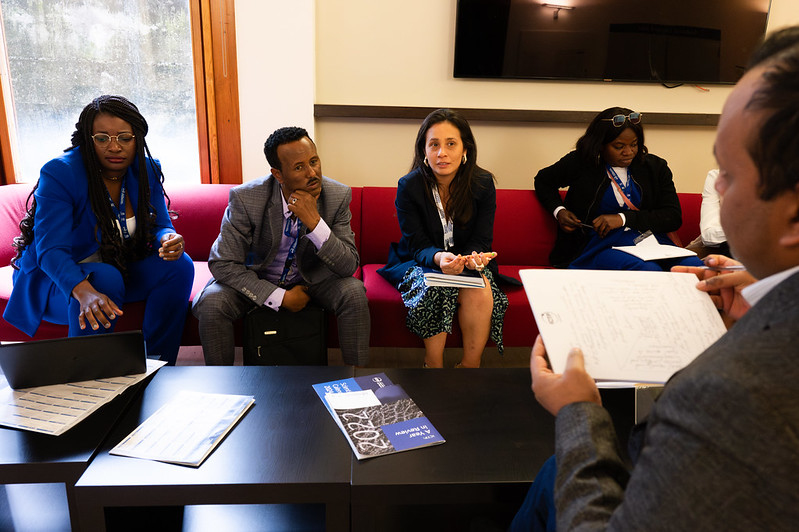
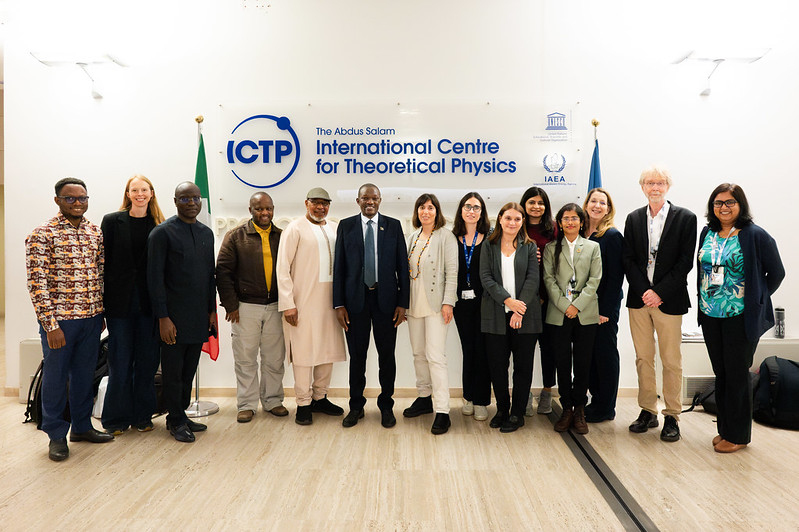
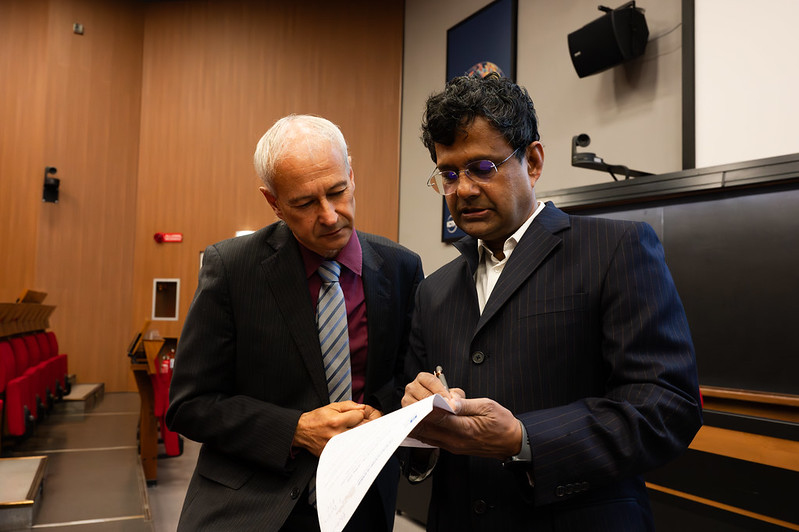
(Photo: G. Ortolani/TWAS)

